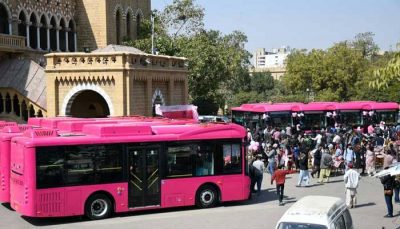Anti-corruption rhetoric was the central plank of the Pakistan Tehreek-e-Insaf’s (PTI) identity while it was in the opposition. Its leaders regularly described corruption in moral terms. Naeem-ul-Haque, a Special Assistant to the Prime Minister, for instance, exemplified this starkly, when he called the elections “A contest between the forces of good and evil.” Such language suggests that anti-corruption drives are about rooting out immoral individuals from an otherwise neutral system. As the party completes its transition from boisterous opposition to running the country’s administration, it must evolve a more nuanced approach towards tackling corruption.
The idea that anti-corruption needs to be focused on bringing back stolen money may have energised the PTI base, but it is limited in scope. In its controversial verdict in the 2010 Citizens United case, the American Supreme Court described corruption, in that country’s legal sense, as bribery, and bribery as a narrow quid pro quo transaction. Courts must define corruption this narrowly because, in criminal cases, they must be convinced beyond doubt of a defendant’s guilt.
Yet corruption doesn’t always work in a narrow transactional way. Favours to the detriment of public interest are often bestowed in a loose system of barter. Influence is cultivated without specific or immediate needs, only to be harvested years later. And since corruption is conducted secretively, even when it involves narrow transactions, we will often fail to detect and prove it.
Jurists approach anti-corruption retrospectively and leave too many cases unchallenged. Policymakers must, in contrast, take a prospective approach, and ask how they can create an environment in the future that will make corruption less appealing across the board. To do this, policymakers must understand that people aren’t always inherently good or bad; they respond to incentives. An excellent example of this are diplomats posted at the UN headquarters in New York. At times when traffic laws were not enforced due to diplomatic immunity, even diplomats from the most law-abiding countries started breaking the law. When New York later found a loophole and started enforcing rules, even diplomats from corrupt countries – including Pakistanis – stopped breaking rules. The Urdu colloquialism that has ended countless drawing room debates, ‘Yeh qaum nahin sudhar sakti,’ (this nation cannot be set right), is simply untrue.
Once we accept that incentives and not personalities are the principal determinant of corruption, we must ask what creates opportunities for different types of corruption. Corruption can be divided into petty corruption, which is bribery, or theft of public resources conducted at the level of an individual or an office; and grand corruption, which is conducted on a larger scale, necessitating the cooperation and protection of senior politicians and bureaucrats, such as in the unchecked collection of protection money, or bhatta, in Karachi.
Petty corruption is the consequence of specific organisational choices and can be reduced through a change of procedures and rules. The government should consider four principles to reduce petty corruption.
It must conduct audits and regularly pick public servants at random, for wealth audits. It must also conduct surprise inspections and send undercover inspectors to audit offices. Proactive monitoring is important because citizens often fail to report corruption, either because they are colluding with the corrupt (such as when they pay bribes to decrease property tax calculations), or because they don’t expect complaints to lead to action. Auditing can be tricky, because auditors themselves can have incredibly high incentives to accept bribes. Their work must be cross-checked by independent sources, and both rewards and punishments amplified for their actions.
Corruption unearthed in audits needs to be punished. Our system makes it too hard to fire non-performing bureaucrats, and this needs legislative reform. In the meanwhile, recent research shows that merit-based transfers improve bureaucratic incentives significantly in Pakistan.
Bottlenecks in official procedures, where only specific offices or officers can move paperwork, must be reduced. Citizens should, wherever possible, be able to approach multiple independent avenues to get their work done. The less irreplaceable a corrupt official, the lower his or her capacity to charge a bribe. This explains why NADRA offices are often less corrupt than passport offices. While a passport office is assigned to a person based on their domicile, one can get a CNIC issued at any of NADRA’s many facilitation centers – a single centre is not as important to the process.
In some contexts, restricting service providers is unavoidable. For example, we can’t let just anyone issue a license, and so we can’t reduce the inherent propensity for bribery here. In such environments, the dreaded ‘agent’ often appears, ostensibly to facilitate the completion of paperwork, but in reality to channel bribes to officials while retaining plausible deniability. Indeed, research in India suggests that driving inspectors randomly fail applicants who don’t use an agent, regardless of their driving ability, thus forcing more people to apply through that channel. Short of banning agents, the best solution is to hold the office staff responsible during undercover inspections, for any bribes accepted by agents.
Discretion should, whenever possible, be avoided in public procurement and personnel hiring. The more specialised the goods or services procured, the fewer vendors can compete to provide it, and the fewer citizens will be aware whether the prices charged are too high. This increases the risk of collusion between procurer and vendor. Similarly, bureaucrats around the world have been caught auctioning jobs that they are authorised to fill. This is a hard problem to tackle, because discretion and authority can be necessary for a government’s efficient functioning. Perhaps our best defense is to escalate the frequency of audits for senior officials, especially those who deal with postings and procurement.
The above proposals provide an accountability-based approach to anti-corruption. Creating an honest culture and providing personnel with a respectable life can also do wonders. Our best example of this comes from the Motorway Police, oft-cited as one of Pakistan’s least corrupt organisations. This force was constituted of personnel deputed by provincial police forces, which were notoriously corrupt. However, since they were well-paid, made to feel part of a team and monitored by an effective and honest leadership, they transformed. Corruption isn’t necessarily an immutable part of people’s identities: we just have to fix incentives and circumstances.
As anti-corruption efforts are embarked upon, there will be resistance. This has to be predicted and either defanged or borne. Corruption has concentrated beneficiaries and dilutes its burden over a large victim class. Thus, resistance to reform is, typically, fiercer than support. To find the path of least resistance, the government must understand that there are gradations of corruption: when citizens pay bribes, they are either being opportunistic, or forced into a corner. An honest owner of a firm might feel compelled to evade taxes if his competitors are doing so. Someone who has stood in line at the passport office for six hours might feel compelled to pay an agent with repugnance. Such individuals are the least culpable, and will resist change the least.
Those who are part of the class of bribe-takers, such as agents, should be issued warnings and punished gradually. He who is the latest in a long line of agents hasn’t failed society as much as society has failed him. He is set in his ways, but needs time to turn his life around. Finally, no leniency must be showed to those whose corruption clearly emanates from greed. If the previous categories are well-dealt with, this final class can be relatively isolated.
In contrast to the relatively tractable problem of petty corruption, grand corruption, or corruption shielded from action by a political elite, will be harder to solve for the PTI government, given its well-known internal contradictions. The prime minister will have to walk a tight-rope between delivering on anti-corruption for his rank-and-file supporter, many of whom see justice as the party’s raison d’etre, and the electables who carried him to office, who are often beneficiaries of the status quo.
One solution would be for the government to consider a high-profile national initiative that will be hard for individual electables to resist. For example, it can replicate Brazil’s successful Federal Audit program. That country regularly conducts a monthly public lottery, attended by the press, politicians, and civil society. Sixty municipalities – roughly the size of our tehsils – are selected per lottery. A team of highly skilled and highly paid federal auditors are then sent to the municipalities to examine accounts and documents and collect citizen complaints, in a ten-day audit. A report is prepared and submitted to federal and local legislators, and made public. This system has led to citizens rewarding cleaner politicians and punishing the more corrupt ones in subsequent elections.
It is critical here that the entire process be seen as fair, targeting ruling party constituencies as frequently as constituencies won by other parties. The prime minister has talked a good game, claiming that accountability will begin with him, but actions need to match words. Equal treatment will ensure that politicians proven to be corrupt cannot allege political victimisation, or at least ensure that any such allegations don’t gain traction.
Any such audits will have to circumnavigate the problems that have befallen our investigative agencies in the past. First, the Musharraf dictatorship famously balked when the National Accountability Bureau (NAB) opened cases that were politically inexpedient. How the prime minister responds when faced with such a situation, may come to define his administration. As described above, auditors have incredibly high incentives to become corrupt themselves. One only has to leaf through the list of National Reconciliation Order (NRO) beneficiaries to learn that the Federal Investigation Agency (FIA) – to name just one premier institution – has a history of politicised and compromised officers. If anti-corruption is to be successful, it must be done by clean investigation agencies, and this is where the prime minister must start.
While highly attractive, programmes like the audit system described above can be rolled back through an executive order by a successor government as easily as they are enacted. Work must be done on longer-term social processes as well, such as creating citizen awareness. One way to do this is to bolster the Right to Information (RTI) system, which allows citizens to request copies of government documents. RTI was nominally created many years ago, but has been allowed to remain dysfunctional in practice. Delivering transparency, and habituating citizens and reporters to rely on RTI can create a cultural shift that will be harder to roll back, similar to the difficulty now being faced in rolling back press freedom.
Finally, anti-corruption must be recognised as only one element in establishing the rule of law. We need to protect life and establish a robust writ, create sound property rights and enforce contracts better. Much of this rests with judicial reform, for which the prime minister can only facilitate the actions of the judiciary, but not lead the charge.
It will require decades of struggle to create well-governed institutions. That struggle will be carried out by an informed people when enough of us consider corruption as an existential crisis. The new prime minister can play an important role in this journey, but we as citizens should remember that the buck stops firmly with us.
This article was first published in Newsline Magazine here.





